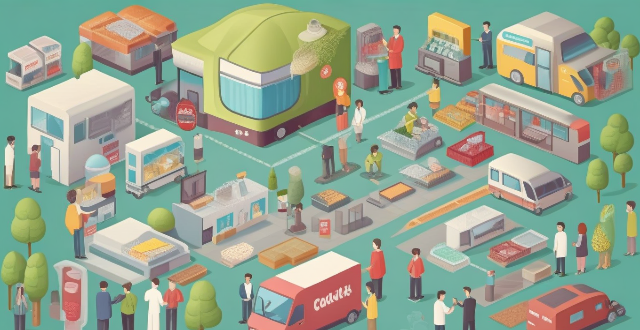Ensuring food safety during transportation is crucial for maintaining the integrity of food products in the supply chain. Measures include proper temperature control, good sanitation practices, careful handling, personnel training, and documentation and tracking. By implementing these measures, the risk of foodborne illnesses can be significantly reduced, ensuring that food products remain safe and wholesome throughout the transportation process.

Ensuring Food Safety During Transportation
Food safety is a critical aspect of the food supply chain, and transportation plays a crucial role in maintaining the integrity of food products. Here are some measures that should be taken to ensure food safety during transportation:
Maintain Proper Temperature Control
- Refrigerated Transport: Use refrigerated trucks or containers for perishable items to maintain the required temperature range.
- Temperature Monitoring: Install temperature monitoring devices to track the temperature throughout the journey and ensure it stays within the safe range.
- Pre-cooling: Pre-cool the transport vehicle before loading to reduce the time needed for the product to reach the desired temperature.
Practice Good Sanitation
- Clean Vehicles: Ensure that transport vehicles are thoroughly cleaned and sanitized before each use.
- Regular Maintenance: Keep the transport equipment well-maintained to prevent any mechanical issues that could compromise food safety.
- Pest Control: Implement pest control measures to prevent insects and rodents from contaminating the food.
Handle with Care
- Proper Packaging: Use appropriate packaging materials to protect the food from physical damage and contamination.
- Load Stabilization: Securely load the food to prevent shifting during transit, which can cause damage or spoilage.
- Avoid Overloading: Do not overload the vehicle, as it can lead to increased temperatures and pressure on the food products.
Train Personnel
- Driver Training: Train drivers on food safety protocols, including proper temperature control and handling procedures.
- Loading and Unloading: Instruct personnel on proper loading and unloading techniques to minimize damage and contamination risks.
- Emergency Response: Educate personnel on how to respond to emergencies, such as temperature fluctuations or equipment failures, during transportation.
Documentation and Tracking
- Shipping Records: Maintain detailed shipping records, including temperature logs, to trace the journey and monitor compliance with food safety regulations.
- Traceability: Implement a traceability system to track the movement of food products from source to destination.
- Auditing: Conduct regular audits to ensure compliance with food safety standards and identify areas for improvement.
By implementing these measures, you can significantly reduce the risk of foodborne illnesses and ensure that your food products remain safe and wholesome throughout the transportation process.